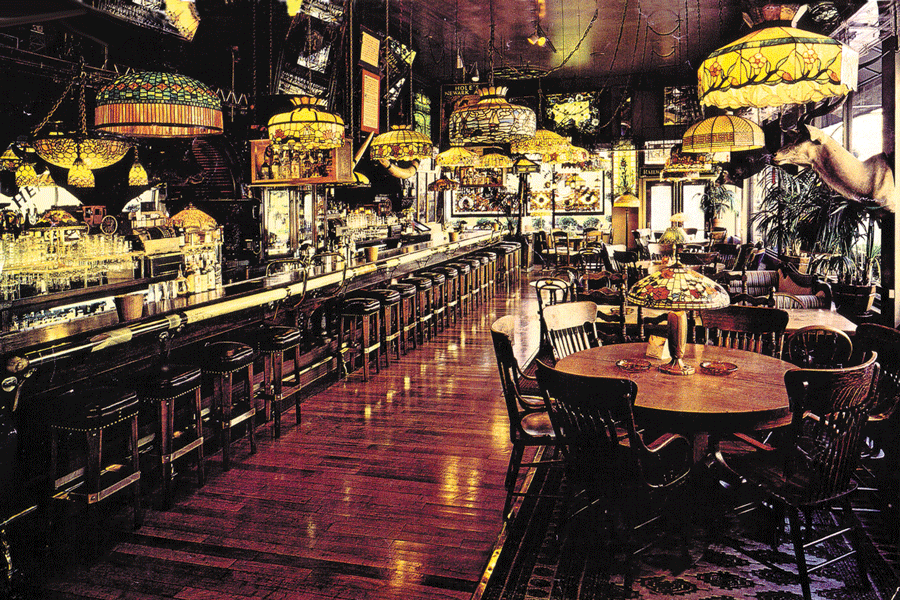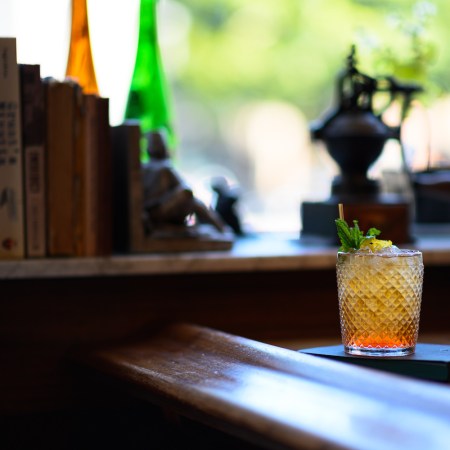The Royal Oak is closing, and with it comes the end of the original fern bars of San Francisco.
It’s on sale for $8.5 million. That buys you not just the bar but the entire 4,900-square-foot property, with its corner location on Polk and Vallejo, plus the four apartments above.
“It can be the same thing, or it could be something entirely different,” says realtor Tasha Delancy, who’s handling the sale while the Royal Oak’s owner, Katherine Papageorge, has decamped to Greece.
When we asked to schedule an interview with Papageorge, Delancy said she would pass on the message: “She’ll call you if she wants to, and she won’t if she doesn’t.” (Spoiler: She didn’t.)
Without an aggressive to-go plan/épicerie setup/digital pivot, the Royal Oak, which opened in 1975, has been shuttered during the pandemic. Its closure, then, marks the end of an era in absentia: the fern bars of the late 1960s and 1970s. Contrary to popular opinion/elementary reading indications, fern bars were not solely about ferns: they were, instead, bars designed to attract women (who apparently occupy the fernier regions of the gender world).
The saloon, the pub, the sports bar, the speakeasy, Hooters: most of the past couple centuries’ worth of drinking establishments were created with the male customer in mind. Fern bars were the exception. The first among them was possibly — depending on whether your source is from the East or West Coast — the inaugural location of T.G.I. Friday’s in 1965, described by Nicola Twilley in the New Yorker as engineered to attract a clientele featuring primarily flight attendants, and benefiting from a design brief of “dainty bentwood chairs, framed photos, Tiffany lamps, and, of course, the signature ferns.” Most of all, it had sugar-sweet drinks tailored for late-mid-century women’s tastes; Harvey Wallbangers came in top of the list.
From there, the trend headed to California, to what West Coast partisans would otherwise credit as the first of the fern bars: Henry Africa’s, founded by the kind of guy who renamed himself after his bar, or vice versa. (The former Norman Hobday, who legally rechristened himself Henry Africa in later life; according to the Chronicle, the name originally came from Hobday’s mother, who supposedly lent him the money to start the bar as long as he named it for an ex-boyfriend of hers: Henry Africa, a former member of the Foreign Legion.) Founded in 1969 on Polk and Broadway, then later moved to Van Ness and Vallejo, Henry Africa’s brought the fern-bar look west, complete with those leaded-glass lamps and an excessive amount of greenery: “They gave it a nice, lush effect and did a hell of a job for what they costm … A friend of mine came in and said, ‘Well, this is a f- fern bar.’ A fern bar it became.”
The fern bar — a marketing campaign selling sugary drinks to single women, and single women to single men — is undoubtedly part of our cultural past, a time when the differences between men and women, and their tastes, could be scribbled on a cocktail napkin with a line dividing them. We live, instead, at a time when most things created “for women” or “for men” are subject to reasonable skepticism (a women’s razor is a men’s razor, just shitty, and sometimes with soap somehow injected into it.) A bar attracting women with its sugar-bomb cocktails suggests a cynicism reminiscent of trapping fruit flies on a countertop with a dish of apple cider vinegar.
If you’re looking for ferns with your drinks, try the Nightingale, the newish bar on Kearny Street with a bevy of ferns, plus Pink Squirrels and Harvey Wallbangers, though a notable lack of Tiffany-style lamps. They’re doing curbside service most days now.
For the former Royal Oak, we look forward to new energy, and new ideas, once we’re past all this mishegas, and whatever plant-centric vibes its new owners want to throw at us — just for the privilege of drinking, once more, in each other’s company. (Suggestion: moss. Moss everywhere.)
This article was featured in the InsideHook SF newsletter. Sign up now for more from the Bay Area.



















